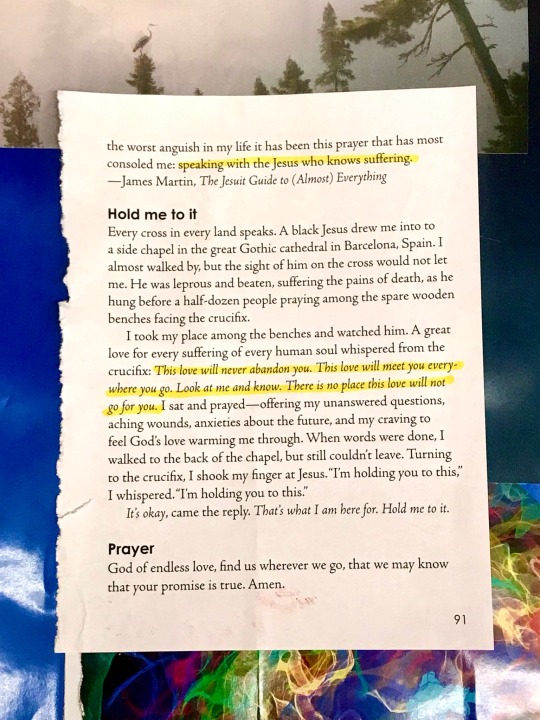#on theology with egharcourt
Text
As far as I've gone in my journey of deconstructing the fundamentalist Christian beliefs that I've been raised with, one issue that I haven't gotten over, and probably never will, is the notion of how letting humans exercise their free will would make God more just, while that also makes people more deserving of their damnation.
I'm talking about this reductive rhetoric often preached in evangelical sects, which goes like this: "God gave humanity the gift of free will, and we all have the choice to obey him or not, so if anybody chooses to defy God or reject him they shall bear the consequences of their own actions (with this often referring to condemnation to hell)". While this could apply to behavior (i.e. murder, assault, greed, adultery etc.) which is morally and ethically unjustifiable, it's also used to denounce morally neutral facets of being human that the church just deems wrong– like being queer, or exercising bodily autonomy.
All debates on the logical fallacies present and how hell is an ill-defined concept (trust, I can write a whole spiel on this) aside, this assertion would make the nature of God...truly confusing.
The implication that having the agency to sin equates to having full comprehension of its consequences is just false, when the consequences of sin aren't even defined so clearly. I guess the most prominent example would be the original sin AKA Adam and Eve eating from the Tree of Good and Evil. Sure, we know it's forbidden, "when you eat from it you will certainly die" (Genesis 3:17), and that's about it. Why? How? What does death mean? What would it be like? So many questions about this command are left unanswered. That's partly also why the serpent could tempt Eve into eating the fruit— because she had misunderstood its connotations. The choice to sin is not an informed choice at all, when its repercussions are incomprehensible to humans. And yet God's children are supposed to bear full responsibility for this?
If this is true, I can't reconcile this notion with an all-loving, merciful God.
#also romans 6:23 “for the wages of sin is death”#again: what is death?#humans barely know what happens in the afterlife so if the result of sin is “you'll die” or “you'll go to hell”#this is not knowledge based on information. this is knowledge operating on fear#would a just God ask for veneration based on fear?#on theology with egharcourt#unless it's braindead “just obey God and turn to Jesus” comments I wholly appreciate your take on this#debate me#I really want to wrap my head around this#truly#religion tw#theology#christianity#progressive christianity#queer chrisitian
20 notes
·
View notes
Text
Hot take for queer christians or affirming christian allies, but focusing on picking apart mistranslations in the clobber verses as the means to address homophobia, transphobia, or queerphobia in the church community is literally not gonna take us anywhere further. Okay, now we've disproved that Lev 18:22 doesn't imply whatever the English translation means. Oh and Deut 22:5 applies to a certain context. And then what. Do we just acquiesce in the fact that, after providing a rebuttal to some points raised by exclusionists, we still gotta sit in this unwelcoming and often spiritually stifling environment that they created.
I think what's fundamentally imperative is understanding what the core tenets of the Christian religion stand for (aka the Great Commandment). The second commandment, "love your neighbor as yourself" already makes it clear that there's no room for prejudice and bigotry. Bring up the verses and stories where the laws change to empower women, sexual minorities and outsiders in social systems that initially deny their rights (the daughters of Zelophehad, Isaiah 56:3-6, Acts 10:9-16). Stories about people who were underdogs, or from such communities, praised, promoted, and occupying an important position in the narrative.
The Bible's a big book and any argument can be extracted out of it to befit one's agenda. With so much hateful and intolerant rhetoric being thrown around, it's way better to highlight the passages that reaffirm marginalized people are blessed and cherished and deserve a place in faith, ESPECIALLY for vulnerable queer folk within the religious community that are told they can't belong. That's all I'm saying.
#religion tw#obviously goes without saying that reconstructing what certain verses imply is important#but I think we can do way fucking better than that!#on theology with egharcourt#liberation theology#progressive christianity#queer christianity#christianity#queer#lgbtq#homophobia tw#queerphobia tw#transphobia tw#religious discourse#religious discussion
13 notes
·
View notes
Text




A collage piece I did last week with old National Geographic magazines and a devotional.
#art#my art#collage#mixed media#magazine#religion cw#deconstructing christianity#theology#on theology with egharcourt
9 notes
·
View notes
Note
favourite bible story??
This is such a hard question because I believe the significance of bible stories depends on the particular circumstance it's addressing because the stories are designed to reflect a certain message. Which, there are a lot of themes that the Bible tries to communicate.
BUT! There's an excerpt that I've read in the bible recently and it really stands out to me. It's like 5 verses only but a surprisingly concise summary of Jesus' whole ministry imo– sometimes I randomly think about the line "I want mercy and not sacrifice." Like, damn.

(Matthew 9:9-13, fyi)
#jesus spittin bars#ask#on theology with egharcourt#happy easter#btw#liberation theology#progressive christianity
5 notes
·
View notes